Solar lights are fantastic devices that give a stylish and energy-efficient lighting solution to your garden. These small lights have sensors that detect light levels and turn them on or off automatically, depending on the day. Although solar lights are fantastic, they can have a common issue – solar lights come on during the daytime when they should be charging up!
It can be very unpleasant, and it can also reduce their longevity. Fortunately, there are numerous solutions for this problem, and it is also a simple one to resolve. If you ask why my solar lights come on during the day, we have provided six potential reasons below and some helpful advice to help!
Why Solar Lights Turn On During the Day
Find out the reasons why your solar lights may be turned on during the day:
1. Your Solar Lighting Is Not in the Right Position
If you are asking yourself, why do my solar lights come on during the day? The most likely answer is the positioning of your solar lights. Think about where you have set the lights before you start taking them apart and disassembling them.
Often, people don’t realize the importance of placing their solar lights in the correct position. The following are some places to avoid when installing your solar lights outside:
- Near trees and bushes that cast large shadows
- In an outdoor area where little light falls
- In the direct shade of your house
If you place your solar lights in the shadow, they will not get enough light. As a result, the sensor will think it is dark and will keep the lights turned on!
Before installing your lights, we advise simply observing your garden for a day. You can see where the shadows fall during this day and which places get the most sun. Also, you can see if any areas are in the shade for most of the day.
Once you have observed your garden or yard for a day, you should have a clear idea of where to place the solar lights. The solar lights must be exposed to a decent level of sunlight to turn off on their own. The solar panels are built to withstand intense light, so you can place them in an outdoor area that gets bright sunlight all day.
2. The Light Sensor Is Obstructed
Cleaning your solar lights is incredibly important. Firstly, who wants dirty solar lights in their garden? Secondly, and more importantly, dirt may prevent direct sunlight from reaching the light sensor.
The light sensors of solar lights need to detect the levels of sunlight to determine if the solar lights need to be turned on or not. If the sensor is obstructed during the daytime, it may think that it is still night. Furthermore, if it is blocked enough to make it dark, it will keep the lights on.
There are many common light sensor obstructions, including:
- Fallen leaves, twigs, and flowers
- Soil and dirt from a lawn
- Dry mud or water from a rain shower
- Bugs and insects
It is why it is essential to clean your solar lights regularly. If you keep the sensor properly clear, you can be sure that this isn’t the reason why your solar lights are turning on during the daytime. To clean the sensor, use a wet cloth to remove any excess dirt and dust. Then, wipe it with a dry cloth to remove any excess moisture.
3. The Light Sensor Is Damaged or Faulty
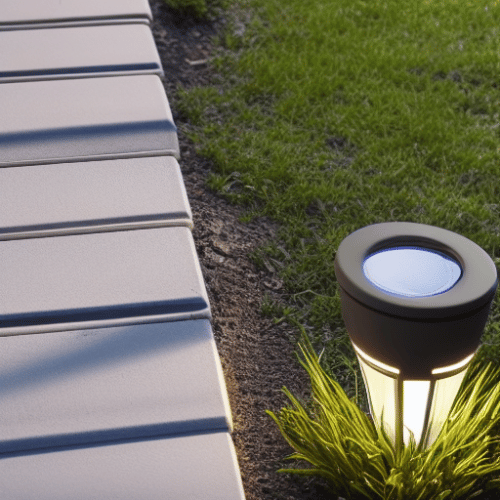
One of the most common issues is a faulty light sensor. The sensor is how the lights come on and how they detect how dark it is at night. If the sensor is broken or defective, it may simply keep triggering and make the lights come on even during the daytime.
It can be a difficult issue to determine. You should use the process of elimination and check for the other five potential problems listed here. If none of these, it is most likely that it is the sensor causing the problem.
If the solar panels are under the manufacturer’s warranty still, you can request a replacement. It could simply be a defect, and that particular solar light could be faulty. However, if you have had the solar lights for a long time, the sensor may simply be worn out, and its circuits could have deteriorated. If so, you would, unfortunately, have to pay for a replacement.
4. The Settings of the Solar Lighting Need Adjusting
Most solar lights will have sensitivity settings. These settings directly affect how the sensor works and the lighting conditions it requires to activate the lights.
There is the possibility that you have the sensitivity set too high. If this is the case, even the smallest of shadows could trigger the lights and cause them to turn on! It could be something simple like an insect flying in front of the sensor triggering it!
As you get used to the lights, it may be prudent to try different sensitivity settings. Over time, you should understand which sensitivity setting gives the best results. Also, consider that you may need to change the sensitivity during different seasons. For example, the lighting conditions in summer and winter are dramatically different. It could result in strange solar light activity.
For example, during the summer, you may have to turn the sensitivity up as it generally stays lighter for longer at night. Alternatively, during winter, you may have to turn the sensitivity down as the night is much darker quicker. You will find that you have to adjust the sensitivity depending on the seasons to get the best usage from the lights.
5. The Light Duration Is Set For Too Long
Some outdoor lights have an advanced set of functions and settings. One of these for solar panels is a timer or duration setting. You can set this to dictate how long the light remains turned on. This setting usually activates when the light sensor is triggered.
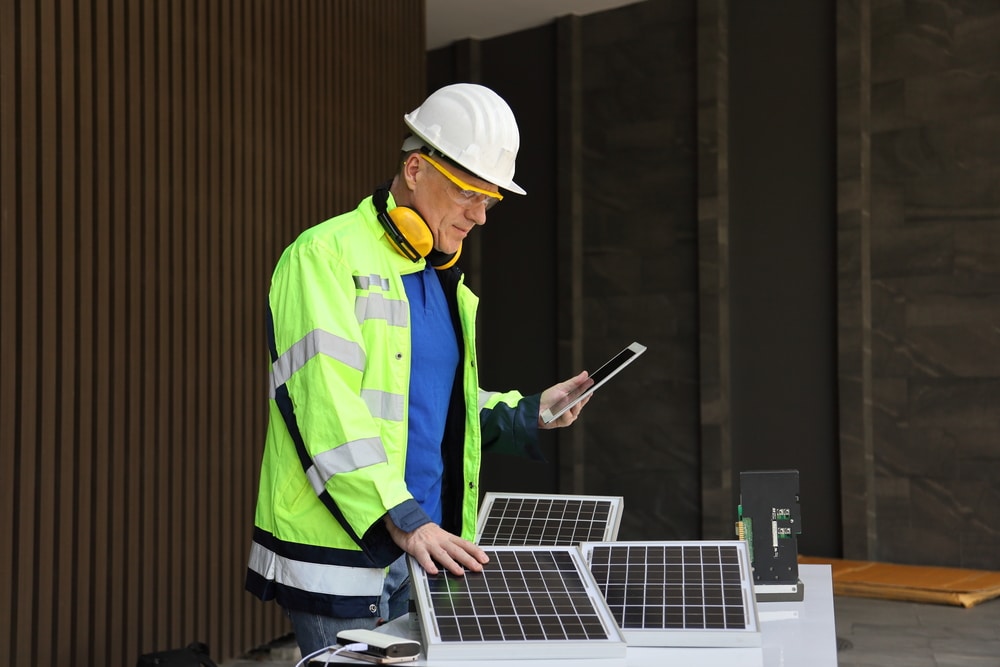
For example, you could set the timer for five hours. If it was triggered at 18:00, the light would then automatically stay on until 23:00. You may have accidentally set the timer function or may have forgotten that it was set.
If the light sensor is faulty or obscured, it can also cause issues with any timer settings. For example, if the sensor is covered in dust and dirt, it could keep triggering the automatic timer setting. As a result, the light would keep turning on, and the end-timer setting would keep getting pushed back!
6. You May Have Turned the Override Switch on Accidentally
You will find that most models of solar panel lights will have an override switch. Their main functionality involves automated lights based on the sun and having enough sunlight. However, as this can sometimes be inconsistent, the override switch is also added.
Essentially, the override switch is an on/off button. It allows you to turn the lights on or off, regardless of the lighting conditions outside. There is the possibility that you have turned this switch on by accident or knocked it. In this case, if it were in the on position, the light would never turn off!
Before resorting to an electrician, or sending the solar panel lights back, check the override switch. If you are unsure of where it is, check the instruction manual, as it should have a clear diagram. If the problem persists when the override button is turned off, you know it is another issue.
Tips for Solar Light Usage
Now that we have looked at the common faults and issues, we can look at tips for better usage of your lights. In most instances, if you install your lights correctly and take good care of them, you should never encounter this issue.
Think Carefully About the Solar Light Position
As mentioned above, positioning is vital! The panels need sunlight to work effectively. If you place your panels and solar light in shadow, they will always turn on, regardless of the time of day! Spend time looking at your garden and considering the best spots to place the lights.
Most people install their lights where they look best at nighttime. Whilst this is preferable, only looking at night doesn’t give you the complete picture. You must look at the lights during the day and create a solution where the lights will look good but will still get enough light to charge the rechargeable batteries and turn themselves off during the day!
Check the Sensitivity and Other Features Before the Installation
Once you have the perfect position for your solar light, you should then look at the sensitivity and other features. Make sure the sensitivity has been appropriately adjusted – it shouldn’t be too high. Also, check for any timer function and the override switch.
The override switch should be turned off. Also, if you choose to use the timer setting, be sure to note the times you have set. Over time, as the seasons change, you may need to adjust this as lighting conditions change outside.
Clean the Light Sensors Regularly
As with any garden accessory, your solar lights come with a cleaning responsibility! Clean them semi-frequently, like once a month. Make sure to clean the sensor, the light casing, and the control panel. It will reduce the chance that the sensor can stop working as it is covered in dirt.
Besides cleaning them regularly, we advise cleaning the lights after heavy rain or any storms and windy weather. During these conditions, debris may easily cover the sensor and cause it not to work.
Contact the Manufacturer for a Replacement
In most instances, contacting an electrician to fix your solar lights is not worth the hassle and money. For what an electrician would charge for a call-out rate and repair your solar lights, it is often cheaper to get replacement lights.
Also, an electrician may not be able to fix a solar light anyway! For example, if the sensor had worn out or broken, an electrician wouldn’t be able to fix this. If you have exhausted all of the above pointers and the solar light is still turning on during the hours of the day, we advise the manufacturer first.
If it is under warranty, they may be willing to send a replacement. Alternatively, they may also be able to advise you further or give specialist information. Call an electrician who would check the batteries and light as a favour; by all means, do so!
Solar Light FAQs
Below are some of the frequently asked questions about solar lights. Hopefully, this will give you a better idea of taking care of your solar lights better.
How Long Do Solar Lights Typically Last?
The batteries in solar yard lights are not permanent, and they will eventually need replacing. On average, batteries for a solar light can last for up to 600 charges. It translates to about a 2-year lifespan. However, this varies depending on the battery and model of light.
Could You Leave Your Solar Lights on Overnight, All Night?
Most solar lighting will have a complete power switch, so you can turn them off when you go to bed if you wish. However, there is no reason why you cannot leave it overnight. It will not cause any damage to the sensor or batteries. However, is why it’s essential to ensure they turn off during the day to preserve their utility and battery.
Will Your Solar Panel Lights Still Charge During Cloudy Days?
Yes! People often think that you need bright lighting conditions and clear skies for your solar lights to charge. However, this is not the case. The charging unit within solar lighting doesn’t require direct sunlight. Instead, it works on light sensitivity and light density. Therefore, providing that some light is still breaking through the clouds, your batteries will still charge. However, as mentioned in the guide, a solar light will not work if placed somewhere in the shade or in complete shadow.
Be Bright and Go Solar
Using solar lights offers many benefits. For one, it is a greener and more cost-effective alternative. Apart from that, it is pretty easy to install and requires less maintenance. That is why you must know how to take care of them and spot problems right away.
A common question people ask when they use solar lights is, “Why do my solar lights come on during the day?” Hopefully, this guide helped you figure out why your solar lights turn on during the day.
Aside from the reasons mentioned above, it may also be that the solar lights are faulty. If they are relatively new, it could be worth contacting the manufacturer or establishing where you bought them. However, if they’ve been soaking up the sun for a couple of years, you may consider purchasing a new set.
Either way, let us know what works for you in the comments!

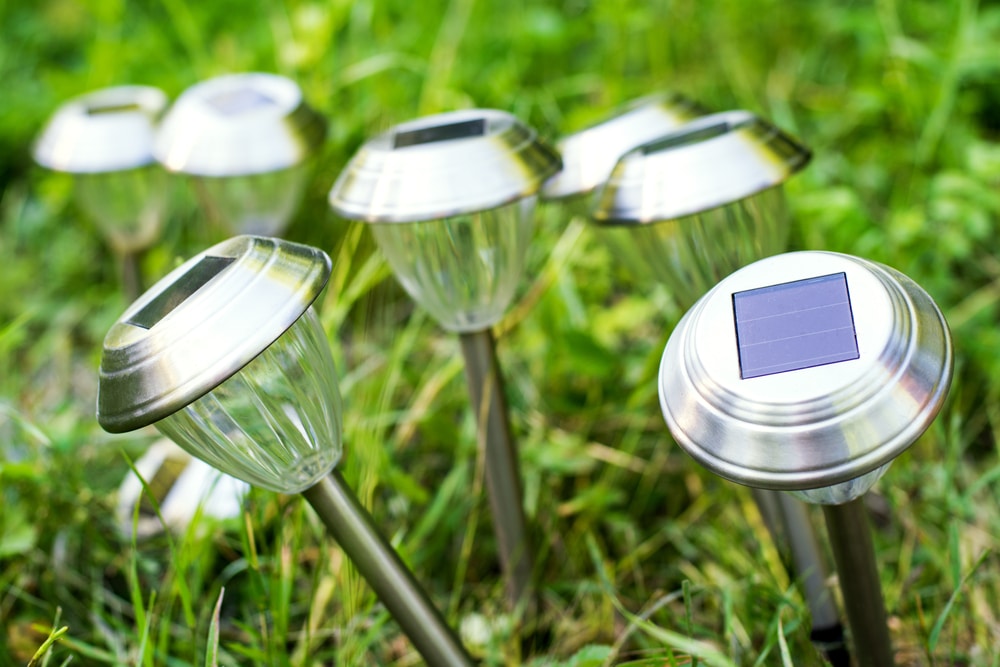
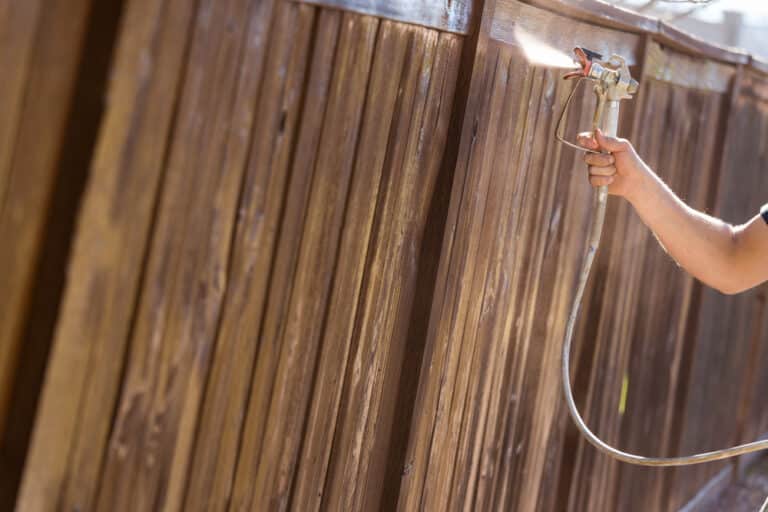

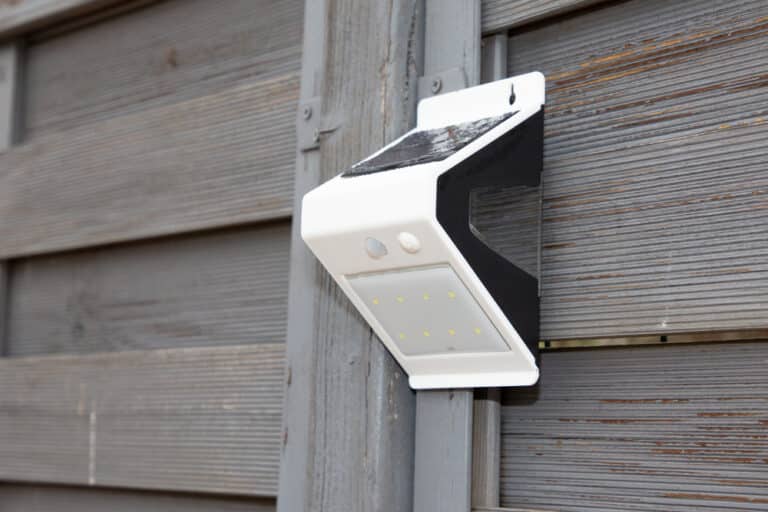
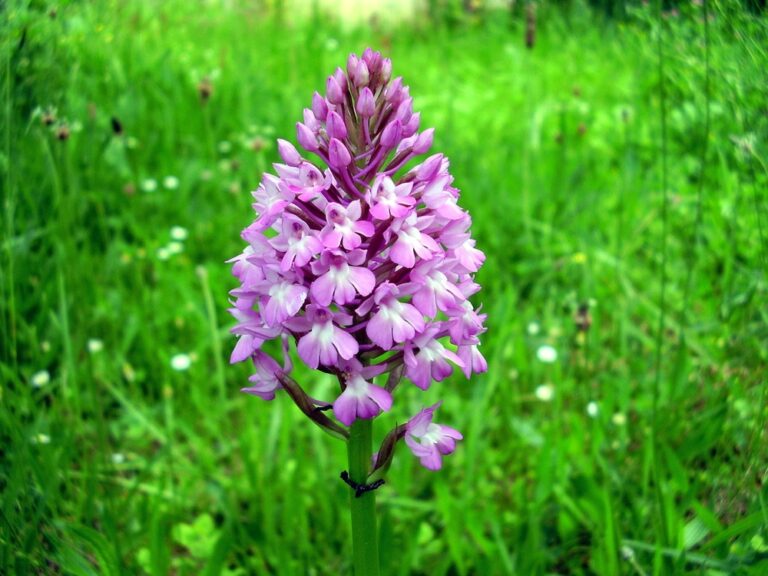


I think the big problem depends on the quality of the solar lights. However, it is not easy to find a reputable supplier with a reasonable price of solar lights.
I think the big problem depends on the quality of the solar lights. However, it is not easy to find a reputable supplier with a reasonable price of solar lights.